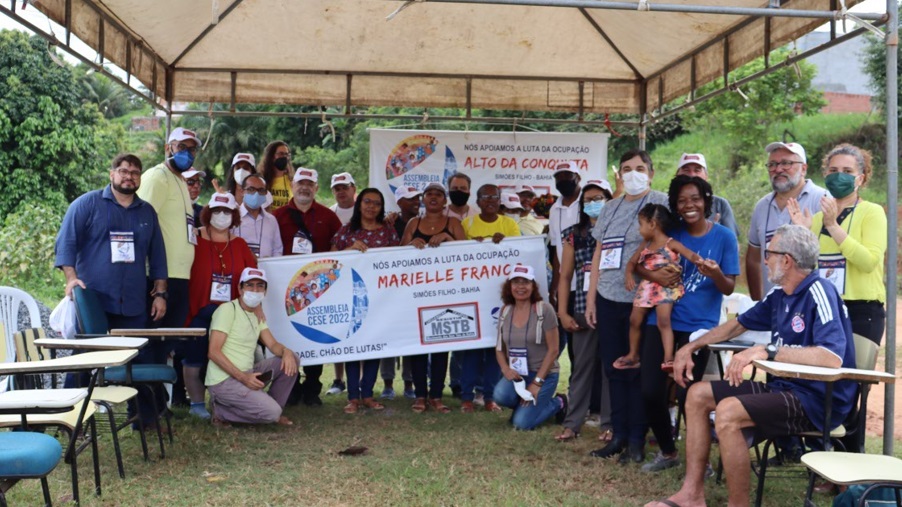
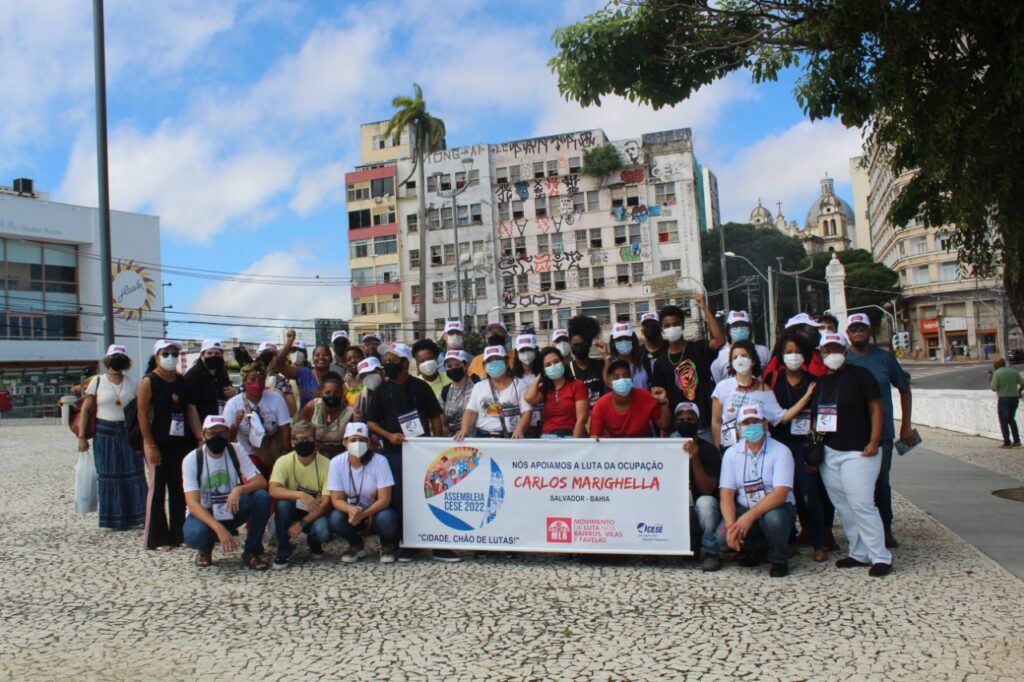
Social movement settlements housing at least 600 families threatened with expulsion from their territories in Salvador and Simões Filho, in the state of Bahia
Urucum, okra, cassava, passion fruit, peppers, corn, sugarcane, java plums, pigeon peas, cashew compotes, medicinal leaves, cattle, chickens, dogs, cats, handicrafts, poetry. According to Anita Epaminondas dos Santos, resident of the Alto da Conquista Informal Settlement, coordinated by the Homeless Movement of Bahia (Movimento Sem Teto da Bahia: MSTB), in Simões Filho, the soil that today germinates so much life was labelled “diseased” by representatives of the municipal government as a justification for not opening schools in the community. One right denied and so many others not fulfilled.
All this varied produce is the result of the resistance and toil of the 120 families who today live in the informal settlement, which was set up in 2007, when families with nowhere to live began to add a social function to their work in a housing complex that had been abandoned by the municipality. These families, the majority black and with a significant number of women, young people and children, have built their homes, their fertile gardens, their arts, through their struggle. For them, the State is only present in the form of oppression, never to guarantee rights.
The current board, the executive team, representatives from member-churches and partner organizations all came together for the 49th Assembly of the Ecumenical Coordination of Service (Coordenadoria Ecumênica de Serviço: CESE). Divided into two groups, the commissions visited three informal settlements run by social movements engaged in the struggle for the Right to the City, in particular to housing: the Alto da Conquista community and its neighbour, the Marielle Franco community, both of which are run by the MSTB in Simões Filho, and the Carlos Marighella Informal Settlement (Movement for the Struggle in the Neighbourhoods, Villages and Favelas – Movimento de Luta nos Bairros, Vilas e Favelas: MLB) in Salvador’s Historic Centre.
The Marielle Franco Informal Settlement is the more recent community in Simões Filho and was set up in 2017. Today the community is formed of 250 families, but it has housed 350. “A mother came to me tonight. She’d been evicted with her four children. She knocked on my door asking what she should do. I replied that she could sleep in my house and we’d try to sort something out in the morning. I’ve lost count of the number of times eviction attempts have been made. I’ve had to crawl out of bed to fight when I’m sick. Everything is collective,” Anita explained.
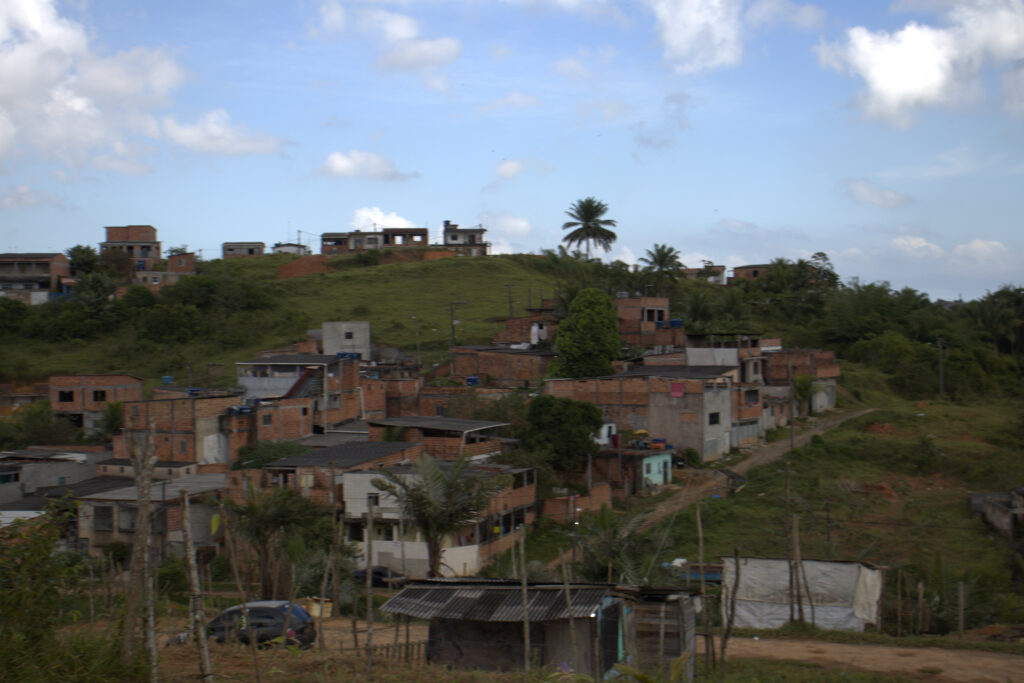
She described how the Carolina Maria de Jesus Community School, located at the entrance to the settlement, continued to teach 36 children from the community during the pandemic. Today, following the return to in-person lessons, the school is providing remedial classes and evening classes in Education for Young People and Adults. The families have also organized themselves to provide first aid classes within the settlement. Everything is carried out by residents.
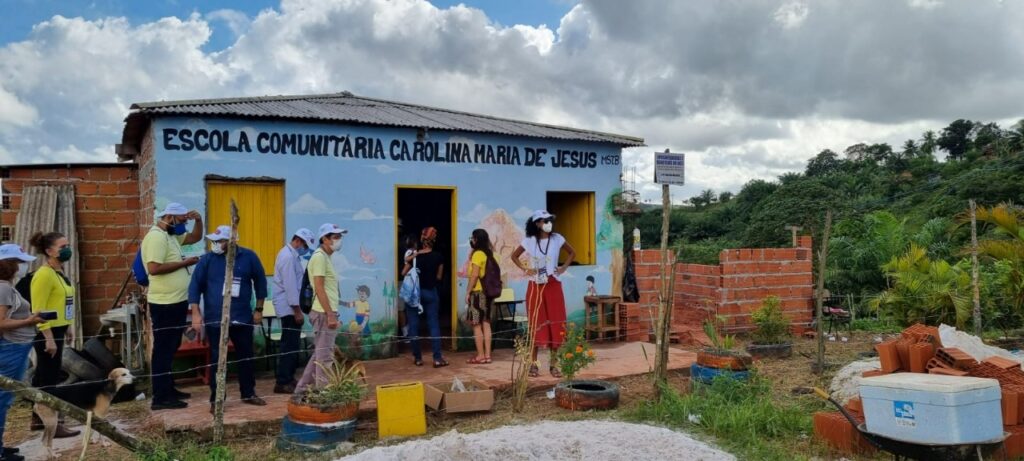
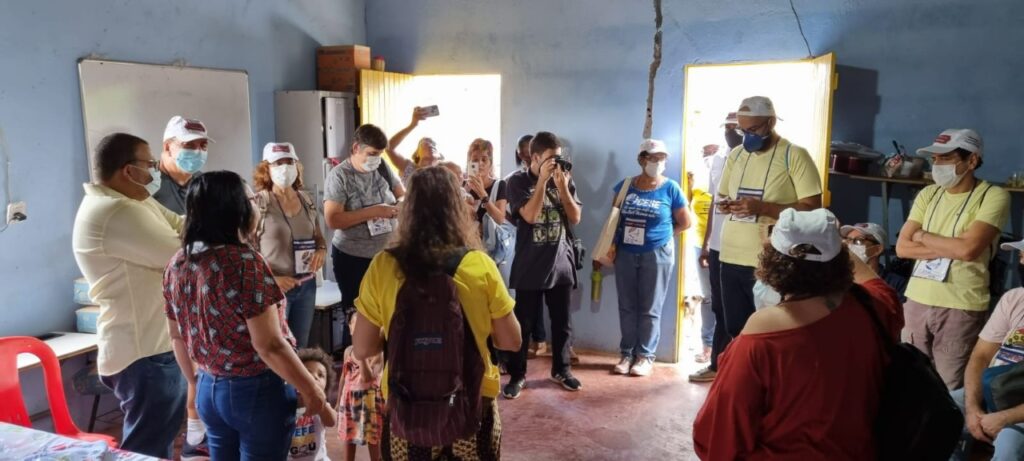
Both communities are under threat. Currently, a rancher family has a lawsuit in the courts to repossess the land that today houses the settlements. “This place here … was abandoned. They ate up public money and they’re really angry with us for occupying this space. Nothing was produced here, there was no environment, fruit trees, nothing. We haven’t deforested anything. We have simply cleared an area that was overrun by criminals.”
The group was accompanied on the visit by a member of the Centre for Studies and Social Action (Centro de Estudos e Ação Social: CEAS).
Salvador’s Historic Centre
To understand a little more about the struggle for the right to housing, assembly participants also visited Salvador’s Historic Centre, focusing their gaze on those who are invisible and constantly criminalized in this part of the city. Here, they were able to experience close up the contradictions of large hotels and enterprises located alongside informal settlements, and the violation of the right to urban space.
Wagner Moreira, member of IDEAS – Grassroots Advisors (Assessoria Popular), drew attention to how Salvador’s centre has been appropriated and redesigned by the private sector property market in order to accumulate areas and speculate: “The centre is connected to various amenities, ranging from access to transport, to culture, even to All Saint’s Bay. The middle class needs to cross the city to access all of this. The market has turned to high-end hotels and residential construction. And this ‘investment’ falls on and threatens community housing and resistance. It is a debate for reclaiming black territories. A very modern urban land grab.”
During the visit, the group went to the Ladeira da Conceição, (the hill where marble workers, blacksmiths and locksmiths, responsible for the construction of the region’s intangible heritage, reside and resist) and saw Ladeira da Preguiça and Gamboa de Baixo, communities composed of coordinated movements that fight for grassroots housing in Salvador’s Historic Centre and who confront the elitist and eugenicist project for the “hygienisation” of the area.
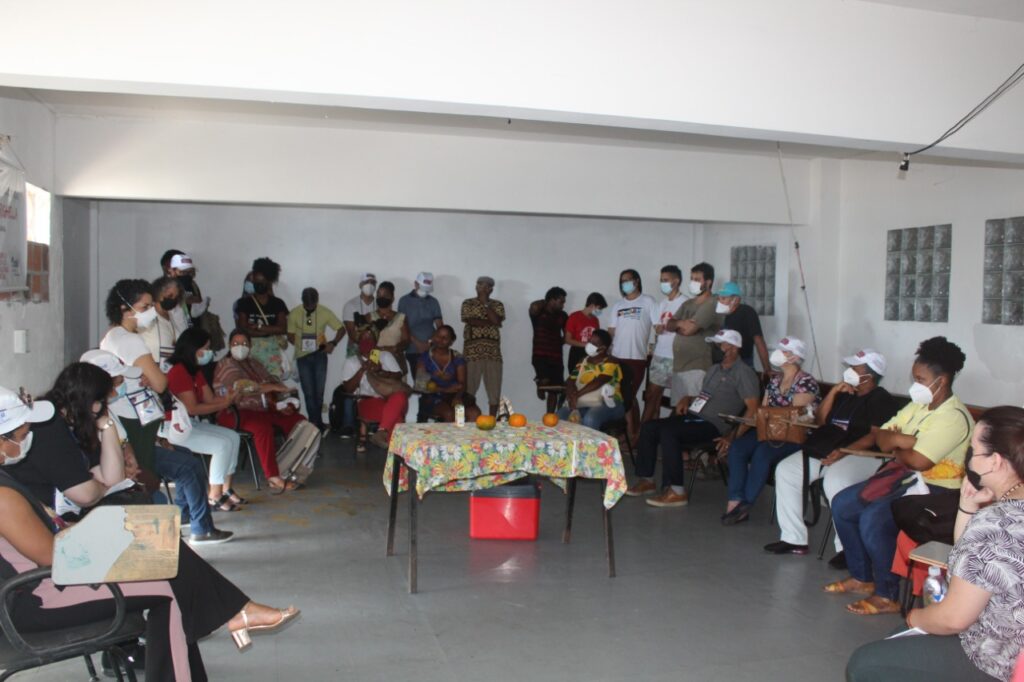
The “tour” ended with a visit to the Carlos Marighella Informal Settlement. This is located on Sete de Setembro Avenue, in Salvador’s Historic Centre, and is organized by the MLB, which works nationally for urban reform and the human right to decent housing. The settlement began in June 2021, in a building abandoned by the Bahia Water and Sanitation Company (Empresa Baiana de Águas e Saneamento: EMBASA), and currently houses 150 families, including many women, children, old people and people with disabilities and co-morbidities.
A further 150 have registered to occupy the building. In a moment of health crisis, some of them need to take turns “staying” there and then move on to other places. These families have neither employment nor fixed incomes.
“We’re here not only for housing, but seeking dignity and saying no to gentrification. This city, the Historic Centre, was constructed by us, by black enslaved people, who don’t have the least mobility or employment, and didn’t have access to health mechanisms during the pandemic. We’ll demand and fight for Urban Reform, to have a new project for the city,” said Eslane Paixão, MLB Coordinator and activist in the Olga Benário Women’s Movement (Movimento de Mulheres Olga Benário).
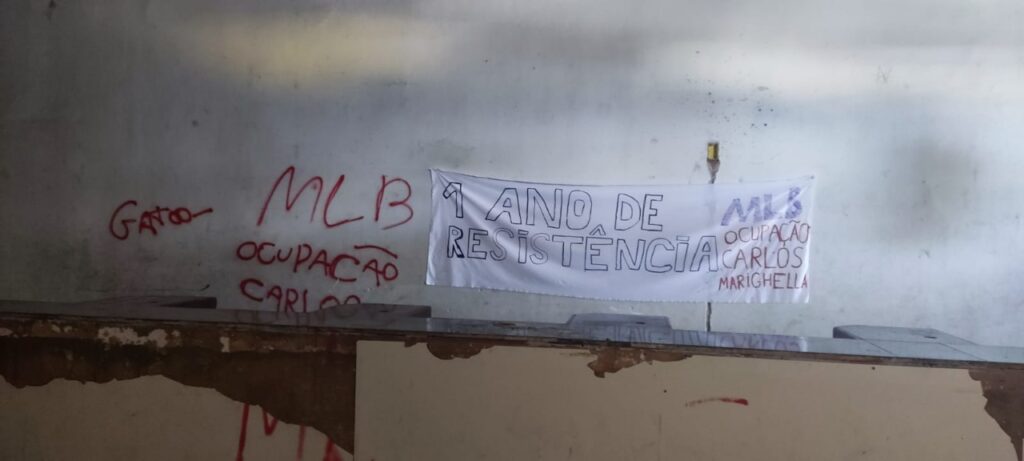
Bia Faria, MLB representative, described how the Carlos Marighella Informal Settlement is also an arena for training, debate and confrontation. Since last year, the building has housed training meetings for residents and runs activities and remedial classes for children. The activist notes that their current mobilization is for the construction of a crèche which will serve not only the settlement families, but also the children of street vendors in the region. “With the strength of grassroots power we will professionalize this work for quality popular education. We will also provide vocational and literacy classes for adults.
MLB leaders also reported that legal efforts for them to remain in the Carlos Marighella informal settlement, with support from the People’s Legal Advisory Centre (Núcleo de Assessoria Jurídica Popular: SAJU), resulted in the July 2021 suspension, by the Bahia Court of Justice, of the repossession warrant for the immediate removal of the families, when they demonstrated that the property was fit for habitation. The court complied with the Supreme Federal Court (Supremo Tribunal Federal: STF) measure (ADPF 828) which suspended evictions during the pandemic and also laid down that, in the case of removal, residents must be relocated to decent housing. However, the situation, remains unclear.
Vanessa Pugliese, CESE Project and Training Advisor, noted that the visits made during the assembly emphasize CESE’s support to agendas for the defence of the rights to housing and to the city and its respect for community leadership, as well as support for grassroots struggles in defence of the territories. Urban settlements, particularly in Salvador, are also characterized by significant struggles against racism.
“This activity is even more relevant right now, with increased evictions around the country, in spite of the STF measure, which suspended evictions during the pandemic. Despite all the grassroots mobilization and its prolongation, the measure comes to an end at the end of June, threatening thousands of families. There is an urgent need to put into practice the guidelines drafted by social movements and organizations during the Grassroots Conference for the Right to the City, which has just been held in São Paulo (03-05 June 2022) and was attended by a number of the movements present here and by CESE,” she declared.
The following representatives from movements and communities in Salvador’s Historic Centre took part in the visit: the Association of Residents and Friends of Gegê from Gamboa de Baixo (Associação dos Moradores e Amigos de Gegê da Gamboa de Baixo); the Craftsmen of the Ladeira da Conceição da Praia (Artífices da Ladeira da Conceição da Praia); the Cultural Centre What Hill is This? (Centro Cultural Que Ladeira é Essa?); and the Vila Coração de Maria Collective (Coletivo Vila Coração de Maria). Other participants included partners from the fight for the Right to the City: SAJU and IDEAS – Grassroots Advisors.
CESE’s 49th Assembly
In 2022, CESE decided to highlight the struggles of the social movements for the Right to the City. The aim of the Assembly was to raise awareness and commit churches and ecumenical organizations to the causes defended by the grassroots movements, as well as to offer solidarity to communities experiencing serious rights violations, to denounce these violations and provide visibility to the movements’ activities for the defence of rights.
Data from 2019 indicate that there is a shortage of almost 6 million homes in Brazil (João Pinheiro Foundation), while thousands of properties lie empty and fail to fulfil their social function. Families suffer daily evictions or threats of eviction, often with the use of violence by both public and private security forces. According to data from the Zero Eviction Campaign (Campanha Despejo Zero), a coordinated initiative of more than 100 organizations and movements, by February 2022 more than 27 thousand families had been evicted during the pandemic, while, across the country, more than 132 thousand families are threatened with removal. This principally affects the black population and women, deepening the structural inequalities in Brazilian society.
After the visits on the morning of June 09, the caravans came back together in CESE’s auditorium to debate the situation in the informal settlements. Eleni Rangel, CESE’s Vice President and Presbyter of the Independent Presbyterian Church of Brazil (Igreja Presbiteriana Independente do Brasil: IPIB), noted the extent to which the situation in the cities remains invisible. “You have to look at that building and understand that it is a message of resistance.” With graffiti, scrawls and clothes hanging out of the building, the aesthetic of the Carlos Marighella Informal Settlement is unlike the property enterprises that have appropriated Salvador’s Historic Centre. Settlement leaders explained that this appearance is intentional.
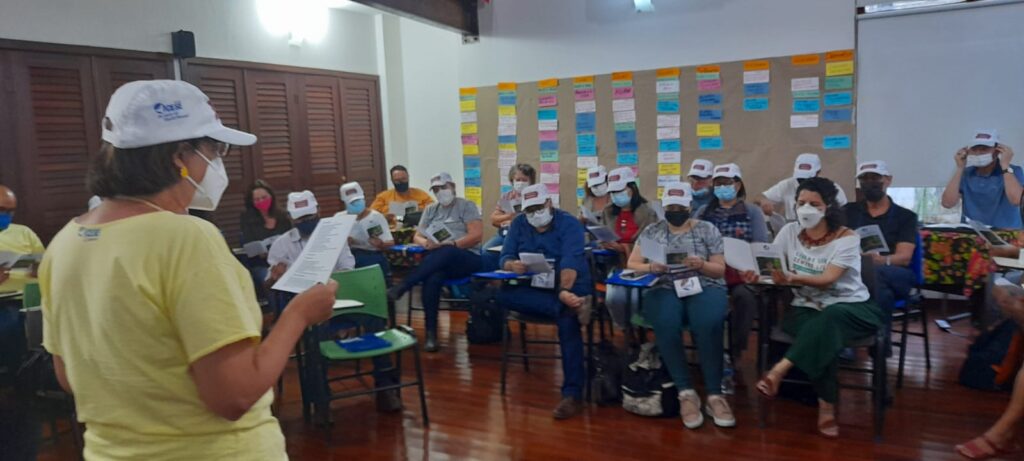
Assembly participants received a remembrance cap in homage to José Carlos Zanetti, our loving revolutionary
Marta Santos Almeida, Presbyter of the United Presbyterian Church of Brazil (Igreja Presbiteriana Unida do Brasil: IPU), pointed out that no one is seeking welfare, what everyone wants is dignity. “It is written in the constitution, but the reality is very far from that. We need the churches to be involved in all of this. How much longer will the gospel of Jesus be preached in the pulpit, but not experienced on the ground? We need to read the Bible in a non-fundamentalist way.”
Sônia Mota, CESE’s Executive Director, noted that CESE’s advocacy activities are fundamental and make a difference to life in the communities. “We need to take over our organization, we need to take on the diaconal arm of our churches. When we invite you, it is to demonstrate that there are committed churches. Fundamentalism has done so much damage in the name of Christianity. We are in the minority, the resistance. We want to strengthen the struggle of the movements. We want to be on the right side. Here, we nourish hope.”
On the day, a committee, formed of partner organizations and the CESE team, drafted the Letter from CESE’s 2022 Assembly – the City, a Fighting Ground! Read it HERE .
The day closed with a ritual in homage to José Carlos Zanetti, CESE’s Projects and Training Advisor, who died in March 2022.
10 June, the second day of the Assembly, was held in CESE’s offices. The morning began with prayers led by Presbyter Eleni Rodrigues Mender Rangel, who ran the assembly in the absence, due to illness, of President Helivete Ribeiro from the Alliance of Baptists of Brazil (Aliança de Batistas do Brasil: ABB). Partner churches and organizations greeted participants.
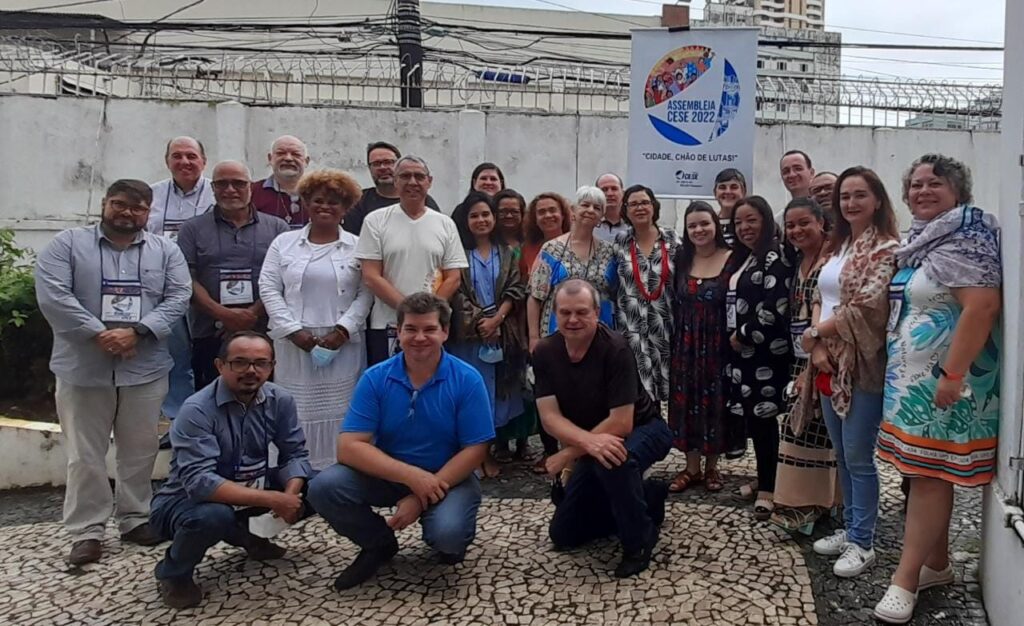
Institutional Board, representative delegates from CESE’s member churches and invitees, on the second day of the Assembly, at the organization’s offices
In the afternoon, the financial report was presented and the Oversight Committee’s opinion, recommending approval of the CESE accounts, was read out. The activity and financial reports were then unanimously approved.
For CESE, this report is an important instrument for management, accountability and dialogue with those who support the institution. “Nothing of what we’ve done would have been possible without the support of the churches, organizations, cooperation agencies and network of friends who believe in CESE’s work and mission. This provides input for discussions, debates and reflections, and contributes to decision-making and changes of direction, or reinforces positions and points out alternatives, strategies and priorities,” declared Antônio Dimas Galvão, CESE Projects and Training Coordinator.
At the end of the session an official statement about the recent disappearance from the Amazon of indigenous ally Bruno Pereira and British journalist Dom Phillips was approved by the assembly, the minutes were read and approved, and a closing celebration was held.
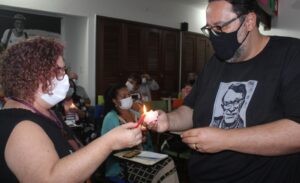
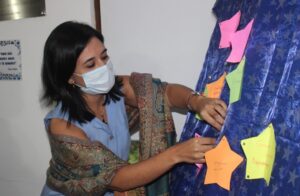
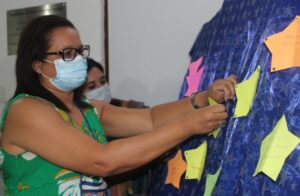
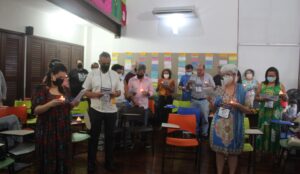
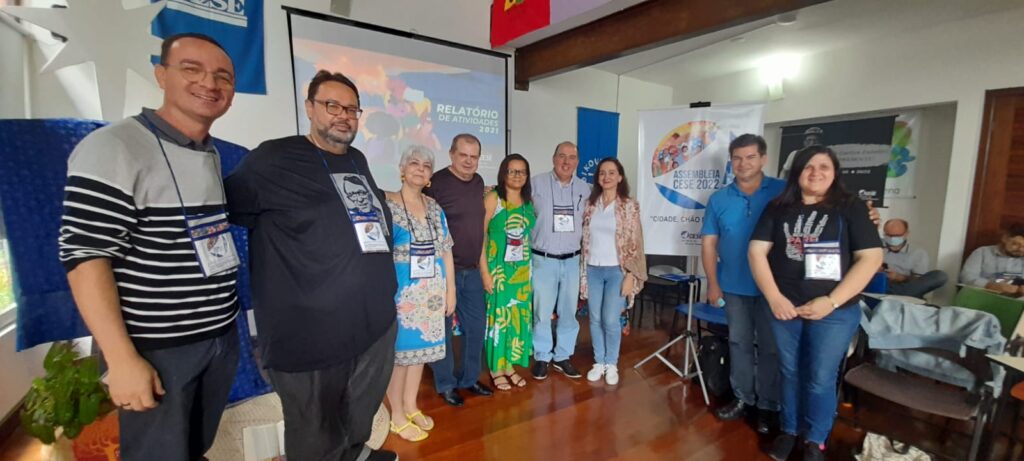
CESE’s Institutional Board and Oversight Committee | Josileide José dos Santos (CESE Oversight Committee and Delegate), Júlia Taís Campos Ribeiro de Oliveira (CESE Oversight Committee Substitute Member), Deacon Luciano Lima Santana (CESE Second Secretary and Delegate), Carmen Andrea Blaas Rodrigues (CESE Oversight Committee and Delegate), Bishop João Cancio Peixoto Filho (CESE First Treasurer and Delegate), Pastor Sidney Retz (CESE Oversight Committee and Delegate) Pastor Renato Küntzer (CESE Second Treasurer and Delegate), Presbyter Eleni Rodrigues Mender Rangel (CESE Vice-President and Delegate) and Rev. Cláudio Márcio Rebouças da Silva (CESE First Secretary and Delegate)

